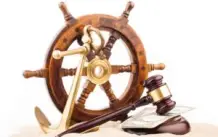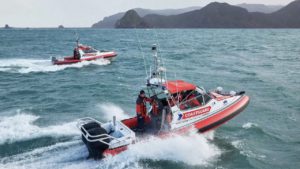
Maritime law is different from personal injury law because when a ship is on the sea, it is ruled by federal laws. Personal injury laws are typically decided by states, with a few exceptions.
Personal Injury vs. Maritime Law
In general, each state has rules for holding a person responsible if they cause an accident and injuries. This is personal injury law.
However, other than the Jones Act, there are very few codified statutes under maritime law. Maritime law is, instead, a collection of case law and precedent used to litigate current claims.
This makes it somewhat challenging to navigate these cases. A personal injury lawyer may not have the necessary knowledge of maritime law unless they regularly handle this type of case. It is important to choose an attorney who understands maritime law when pursuing justice after an injury.
Filing a Claim Based on Sea-Faring Injuries Under Maritime Law
Maritime law allows injured workers to pursue compensation and benefits through claims and lawsuits in the same way a state’s personal injury laws would if they suffered injuries in a car accident or fall incident. However, maritime laws are necessary because the accident occurred on the open water, in a U.S. port, or another location not covered by state civil codes.
Your attorney from our team will know how to gather the necessary evidence to prove your case and navigate the claims process. This could vary depending on the parts of maritime law they use to seek and possibly secure compensation on your behalf.
It may be possible to reach a payout in your maritime law injury case without filing a lawsuit or going to court. Companies and shipowners might have liability insurance that covers the expenses and losses you incurred as well as other recoverable damages.
Seamen Do not Qualify for Workers’ Compensation Coverage
When a worker in the United States gets hurt, they often qualify for workers’ compensation benefits. However, since state laws do not cover seamen, they do not have this coverage to fall back on. Instead, those working on seafaring vessels need maritime law to provide them with options.
Using the Jones Act to Seek Compensation
Under 46 U.S. Code §30104, a part of the Jones Act, an injured seaman can pursue a claim or lawsuit against their employer who caused their accident and injuries. They will need to prove their employer’s negligence contributed to their injuries.
Claiming Compensation for Unseaworthiness
In some cases, an injured worker may instead prove the vessel was not seaworthy and hold the shipowner strictly liable. This is possible under the common law doctrine of unseaworthiness. It may be possible to pursue claims under both of these options.
Claiming Compensation Through Maintenance and Cure
The third option for pursuing compensation and benefits is through maintenance and cure. This could allow seamen to recover medical treatment costs and lost wages while receiving treatment and healing from their injuries.
Taking Action in Your Offshore Injury Case Based on Maritime Law
While there are three primary ways to take action and seek compensation and benefits after an offshore injury, there are many considerations to determine which of these applies in your case and what is needed to secure a payout successfully.
You can learn more during a consultation with a lawyer from our firm representing injured maritime workers. Our law firm provides free initial case reviews to talk to a team member about your legal options based on the details of what happened and the injuries you suffered.
Statute of Limitations on Maritime Law
Like personal injury law, there is a statute of limitations on legal action under the Jones Act. This is generally three years under 46 U.S. Code §30106. However, there may be exceptions.
Your best option is to speak with our lawyers who represent injured offshore workers and seamen regularly.
Reach Out to Laborde Earles Injury Lawyers About Your Offshore Injuries Today
At Laborde Earles Injury Lawyers, we can evaluate your case and help you understand your options for seeking medical care coverage, lost wages, pain and suffering, and more. We can help you recover compensation at no out-of-pocket cost to you. We represent injured seamen based on contingent fees.
Call (337) 777-7777 now to speak with a team member about your injuries. Our attorneys help seamen and sailors win the settlement or court award they need to cover their expenses and losses.





